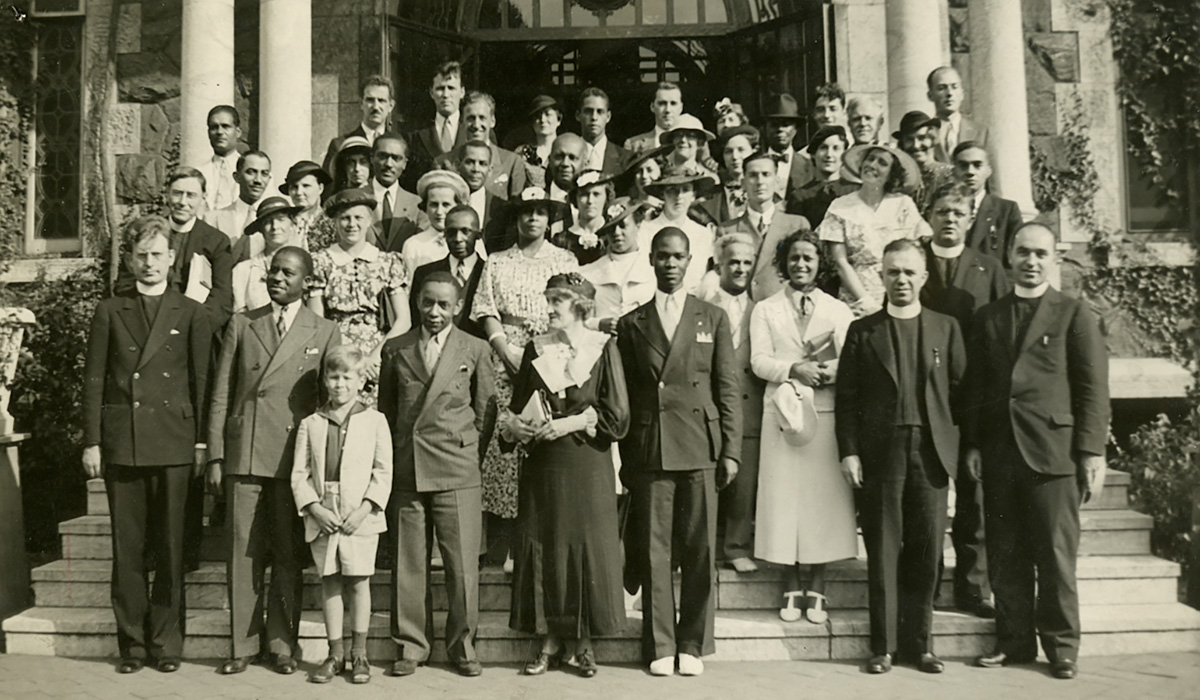

Rich resources for exploring the long, fascinating history of Black Catholics in America are in the archives of the Catholic University of America, where staff are working on getting them digitized. What better time to explore this history than November, which is Black Catholic History Month?
“These collections are very extensive, and we are trying to get as much of the material online as possible,” said Maria Mazzenga, curator of the American Catholic History Collections in the University Libraries.
Some collections already have their own web pages. Finding aids have been created for others.
Web pages for “The Catholic Church, Bishops and Race in the Mid-Twentieth Century” are an excellent place to start exploring. The Catholic Church worked for civil rights in the wider society, even as Black Catholics struggled for full inclusion in Church institutions.
The crown jewel of these collections is the papers of Benedictine Father Cyprian Davis (1930-2015), a historian, theologian, liturgist – and graduate of the University. His groundbreaking research on the history of Black Catholicism reveals long Catholic roots in Africa that gave birth to a vibrant Black Catholicism in America.
Records from the United States Conference of Catholic Bishops Department of Social Action include records for the Catholic Committee of the South. Active between 1939-1956 and 1981-2008, the committee mobilized bishops, clergy, and laity to address poverty, worker exploitation, and racism in the southern United States, and held illegal integrated meetings in Jim Crow states. The committee sought to harness faith and Catholic social teaching to bring economic, social, and spiritual renewal to the South.
The Catholic Interracial Council of New York was founded in 1934 by Father John LaFarge (1880-1963), a Jesuit who taught and worked for racial integration and social justice. This organization continued into the 1990s.
Another leader in the Catholic Interracial Council movement – who also helped to found the NAACP – was Dr. Thomas Wyatt Turner (1877-1978), a Black biologist who had attended the University in 1901. Turner founded the Federated Colored Catholics to promote racial equality in the Church after learning that the University had stopped admitting Black students in 1914 (a practice that continued for 20 years). He and Father LaFarge eventually parted ways over strategic philosophy.
Dr. Euphemia Lofton Haynes (1890-1980), who earned her doctorate from the University in 1943, was the first Black woman to receive a Ph.D. in mathematics. She became an influential teacher and administrator in Washington’s public schools, where she worked relentlessly for desegregation. Her family papers show that she and her husband, Harold, drew on their Catholic understanding of social justice.
Dr. Paul Philps Cooke (1917-2010), who earned his master’s degree in English literature at the University, is another important Black educator and Catholic social activist who left his papers to the University. A president of the District of Columbia Teachers College, he was active for more than 50 years in the Catholic Interracial Council of the District of Columbia.
Elliot Liebow (1925-1934) was a white anthropologist who in 1967 wrote what was then a groundbreaking study of Black urban men: Tally’s Corner: A Study of Negro Streetcorner Men. The book was based on his doctoral research at the University, where he later became a professor in the School for Social Service. His 51 boxes of papers also include research on the lives of homeless women.
Pettigrew for President, now digitized, is a 1964 comic book series sponsored by the University’s Commission on American Citizenship. It imagines a future 1976 presidential race -- with a Black candidate, and was illustrated by Joe Sinnott, of Marvel Comics fame.
Finally, records from the United States Conference of Catholic Bishops include documentation of its work against racism. Records on racial issues are found among many boxes and topics, including the Committee on Cultural Diversity.